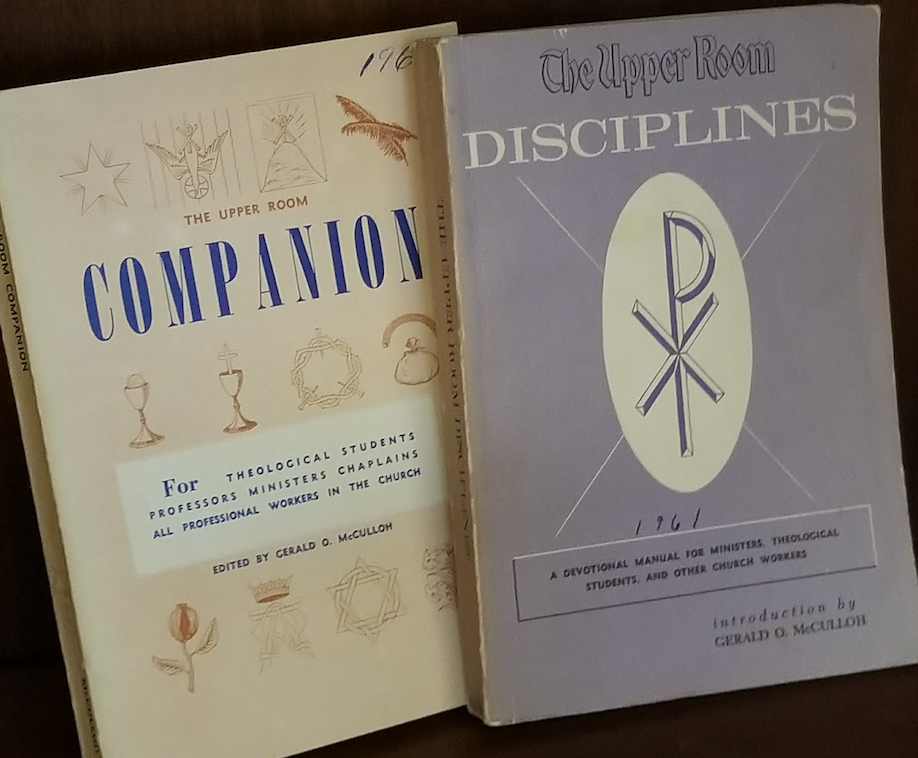
“We hear Rita Collett has retired and you are now editing Disciplines,” the caller said. “We are passing through Nashville and would love to meet you.”
Ray and Roz Hodson have been loyal readers of The Upper Room Disciplines since 1981 shortly after Ray returned from Vietnam. When we met, we talked about Texas and their passion for sharing Disciplines with members of their congregation. Their preacher follows the lectionary, and their Sunday school class feels they learn more from their pastor on Sunday mornings after reading Disciplines meditations on the lectionary texts throughout the week. They were eager to know why I love working on Disciplines. I talked about how I acquire writers and the principles that guide Disciplines’s writing, including how following the lectionary connects readers across denominations. I love that Disciplines is for everyday people but calls us all to a higher standard of engagement with the biblical text. One of my favorite parts of the editorial process is when I get to pull a commentary or a Greek New Testament off my shelf to help the author go a little deeper.

Disciplines has been in my care for only a few short months, so I was eager to share its history with readers as devoted as Roz and Ray. As we looked at a bookshelf full of old editions, they were surprised to learn it wasn’t always lectionary based, and it wasn’t always called Disciplines. In the late 1950s, Dr. J. Manning Potts, editor of The Upper Room daily devotional guide, and Harold Hermann, director of public relations for The Upper Room, conceived of a companion resource to the daily devotional guide for clergy and lay leaders. And so, the 1960 edition of The Upper Room Companion: For Theological Students, Professors, Ministers, Chaplains, All Professional Workers in the Church came to be. In 1961 the title changed to The Upper Room Disciplines: A Devotional Manual for Ministers, Theological Students, and Other Church Workers. It retained that title until 1970, when it simply became The Upper Room Disciplines: Companion to The Upper Room. In 1978, daily devotional guide editor Maxie D. Dunnam introduced Disciplines’s shift to being lectionary based. He wrote, “Here is a new approach to The Upper Room Disciplines—and I believe you are going to profit greatly from it.” In 1979 the volume dropped its subtitle and began in full its life as we know it today—a daily resource based on the lectionary for the devotional lives of all who seek to know God through scripture.
Since its inception, Disciplines has encouraged readers through a variety of voices—US and international, male and female, clergy and lay—and we try to have voices from across Christian denominations. Roz and Ray are United Methodist, yet they are able to share Disciplines with many others because of its commitment to a diversity of voices. As Roz wrote later, “I love sharing it with friends of other [denominations], especially our Catholic friends who follow the Common Lectionary. We need more ways [like this] to be united.”
While devoted readers of Disciplines read the same texts year after year, lectionary cycle after lectionary cycle, each author offers some new way of looking at the text. My deepest hope for Disciplines is that it will continue to be a devotional that binds us to one another—no matter our differences in gender, race, age, location, or denomination—and to our loving God whose word for us is new every morning.
For more information on Upper Room Disciplines, visit http://urdisciplines.upperroombooks.com/